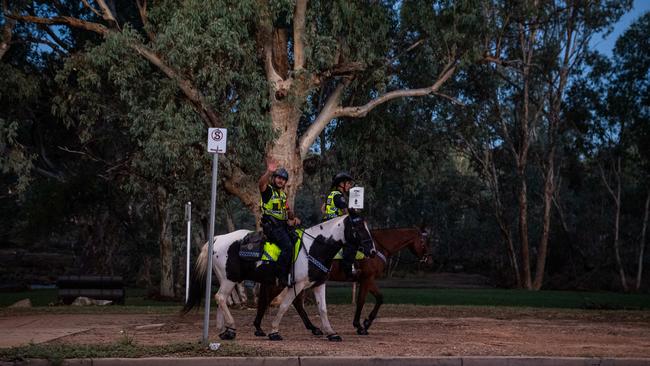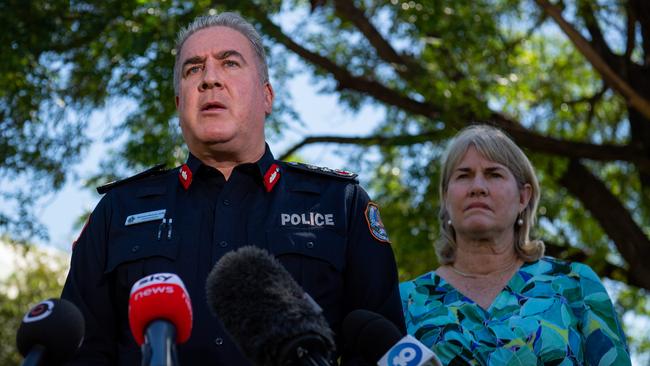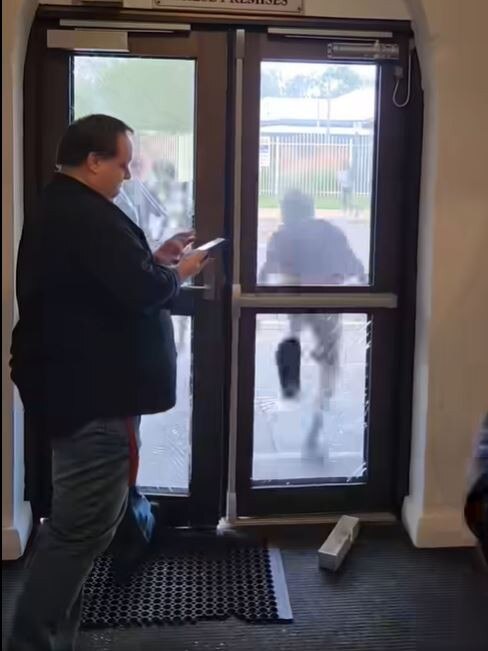Alice Springs curfew can’t hide true source of youth violence

We were exhausted and burnt out, tired of fighting against a seemingly high tide of negativity about remote Aboriginal community councils, already well on their way to being subsumed into regional shires. Our guess was that funding and control would be concentrated at best in the bigger remote communities and at worst in Alice Springs. We figured remote Aboriginal people, unable to exercise much community control, would start spending longer periods, more often, in Alice Springs.
With limited opportunity for a more positive transition to town, these people would end up in town camps and public housing, with little education or prospect for employment.
We certainly did not predict the massive shift in resources away from remote communities over the next 20 years as community councils became shires, community housing became public housing, bilingual schools became English-focused, good community policing became drive in-drive out, and subsidised community employment became enforced activities by employment service providers.
Taken as a whole, it seems entirely foreseeable that there would be an internal displacement of people from remote areas into towns, and that these people would end up on the margins, with many of them and their children pushed into lives of disconnection, frustration, addiction, violence and crime.
I was an onlooker to this one and saw the impact of this frightening, chaotic violence on those directly involved, as well as other onlookers. The social environment that exists in Alice Springs is not good for any of us. Because of this, I support the youth curfew that has now been brought in for the short term, if we take this opportunity to deeply think about where we need to go next.
Social cohesion can only result from a shared vision of the future, from fair and inclusive treatment by authorities, and from equal opportunities to economic participation. I still think most of us believe in one shared future in Central Australia, that we understand that for some of us to thrive the whole community must thrive. But we have a lot of work to do locally to repair relationships. Too often Alice Springs is used as a political football, investment goes into bureaucratic programs instead of local people, and police are asked to do far too much.

We have chosen to fortify ourselves against each other. A pervasive fear caused by break-ins, home invasions and property damage has driven investment in security measures both at work and at home. High-security fencing, security cameras, razor wire, guard dogs, and roller shutters are all part of everyday life here. Much of this infrastructure has been subsidised by various government programs but, even after installation, many find safety to be illusory. The perpetrators of crime are often young people with time on their hands and nothing to lose.
Now some have called for the Australian Defence Force to provide further relief.We are heading toward martial law and, for all the arguments back and forth about whether this should happen or not, the main point we must consider is whether any of this is sustainable.
We lob comments at each other on social media like hand grenades, but find that they hit secondary targets in our faces on our streets. People of capacity, both Indigenous and non-Indigenous, are choosing to move elsewhere. No one wants to raise children in this environment. The resulting “brain drain” is already affecting every aspect of our town.
Education, especially literacy, is key. Without it, the Northern Territory will always be a mendicant Territory. Our workforce will always be fly in-fly out or drive in-drive out. We will always rely on receiving a greater share of the GST, based on our increasing Indigenous disadvantage. We will never be able to build a sustainable economy in the Northern Territory, particularly including a diversified economy on Aboriginal land, without better educational outcomes.

If we could only have a serious, concerted effort to drive improvements in school attendance and literacy, local businesses would jump at the chance to employ local Aboriginal people.
There are so many job opportunities and apprenticeships currently going unfilled. Industries are desperate for local Indigenous workforce participation. Anyone with basic literacy, the ability to learn and the discipline to show up has amazing work opportunities in the Territory. We have to ensure those opportunities are accessible for remote Aboriginal people too.
When NT crime statistics are released, it is inevitably a media event. There are almost always calls for more police and more prisons. And it is true, we do have a law-and-order problem.
But why is it that school attendance records and literacy levels do not cause the same levels of shock and horror in the media and the public? Where are the calls for more teachers and better-resourced schools? Recently, media revealed that remote NT schools have been underfunded by millions of dollars over many years. This bipartisan government policy demonstrates that our political priorities have led us astray. But our social conscience has not matured yet either.
Culture is eroded and undermined by poverty and violence. One thing I didn’t want to happen in my lifetime was for Central Australian Aboriginal people to lose their language, lore and connection to country. It saddens me deeply that we are on this trajectory.
We have made a commodity of Indigenous disadvantage, from top to bottom throughout the Territory, and this strategy has backfired. Negativity is like a whirlpool dragging us under, but the reality is a better future is still within our grasp. We just have to be willing to all pull in the same direction.
Scott McConnell is a long term resident of the Northern Territory and served as member for Stuart in the NT Legislative Assembly from 2016 to 2020.
More Coverage
 We were exhausted and burnt out, tired of fighting against a seemingly high tide of negativity about remote Aboriginal community councils
We were exhausted and burnt out, tired of fighting against a seemingly high tide of negativity about remote Aboriginal community councils





When Aboriginal community councils were defunded in 2008, any psychic worth their salt could have told you remote communities were heading in the wrong direction. A few years earlier I sat on the veranda of a staff house at Ikuntji community (Haasts Bluff) and discussed with my wife what the future might be.